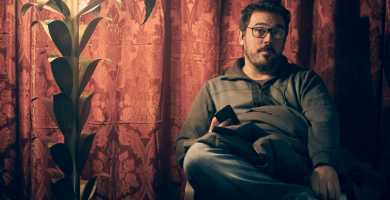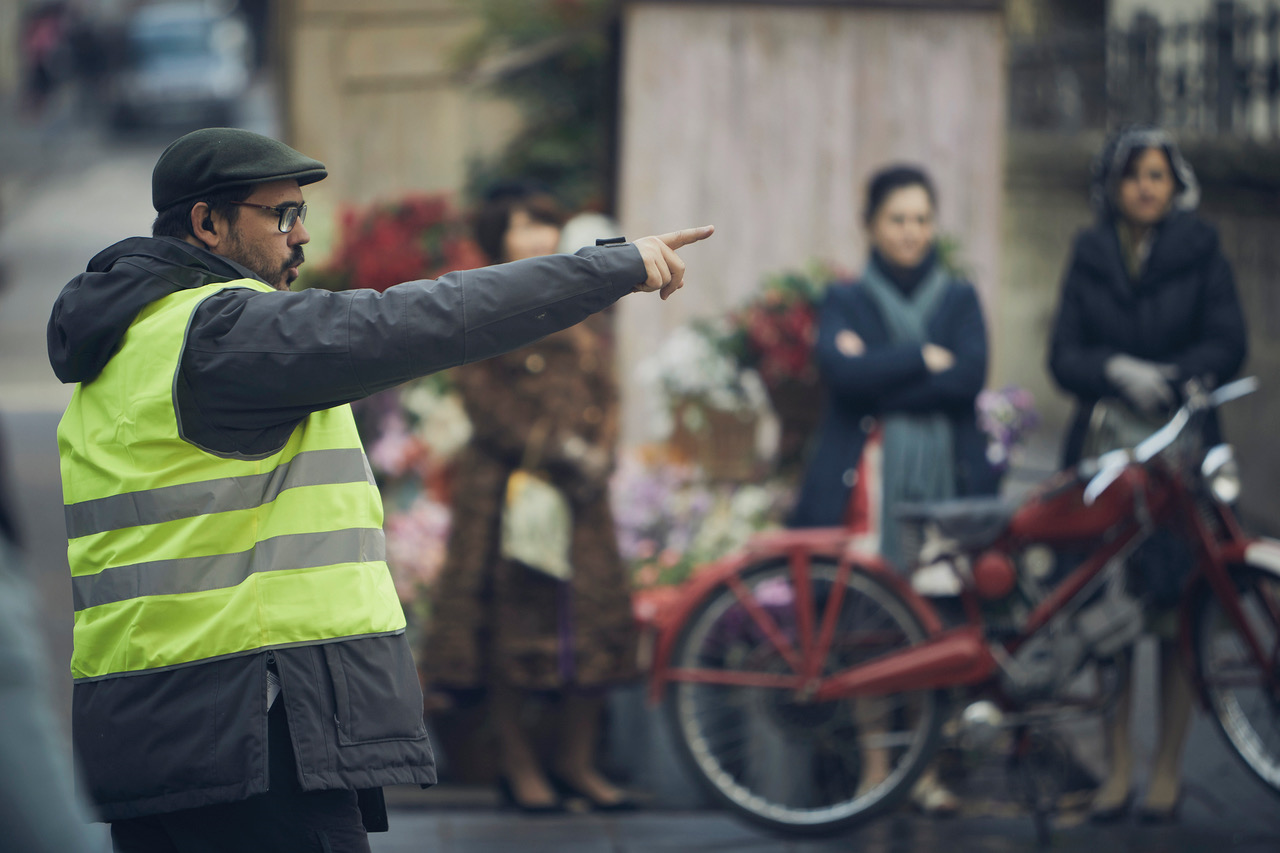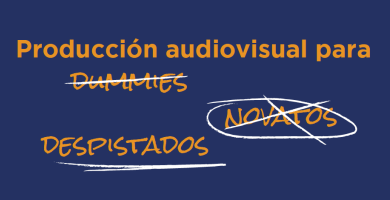
MARC ÁLVAREZ: "We are the liaison between a film crew and “reality."
This month we interview Marc Álvarez, Location Manager of series such as Game of Thrones, Hanna and Hache. We talk with him about his work and the important part that it plays in audiovisual productions.

How did you begin to work in the world of film and how did you end up becoming a Location Manager?
I began to study Image and sound, without knowing very well what I was getting myself into. I thus became engaged in small television projects, almost without realizing, then in advertising as an assistant/errand boy in different departments, until I began to work in “service” productions for foreign projects which came to film in Barcelona/Catalonia. There I discovered the world of locations as an independent production department. Since then, I have always been interested in the creativity part which can be brought to the projects.
Explain exactly what the work of a Location Manager consists of.
Broadly speaking, managing everything related to shooting in natural outdoor settings: managing the both private and administrative licences, coordinating the logistics of the different teams which intervene in a shoot and, above all, ensuring that when we leave our presence on the location cannot be noted...
At what time in the production does the Location Manager join?
The Location Scout almost always intervenes in the most initial phase of the project, proposing real locations based on the references of the Production Designer and/or the Director. Based on what they propose, the production strictly speaking starts, and here the figure of the Location Manager is already essential in order to gradually refine the needs of each location and be able to proceed with the logistics and gestation of the shoot.
How does a Location Scout help a production?
Normally the Location Scouts/Location Managers are people who arrive with years of experience in the sector, in other assistant positions, and therefore over the years a file of images, contacts and knowledge is gradually generated which in the majority of cases is the guide to begin the gestation of the project implemented.
This experience and vision of what may be appropriate for the project, at the same time as having knowledge of what can be achieved with licences, etc., are fundamental.
What relationship does the Location Manager have with the rest of the production department and of the technical team?
I always say that we are the information bridge between film and reality. We adapt and we translate the needs on a shoot so that people who do not have anything to do with the industry understand what we need, the times with which we are working, the size of the team that is required to be able to shoot, etc. The rest of the departments know that we are the liaison between a film crew and “reality”.
What qualities do you think a good Location Manager should have?
There is a large public relations and psychologist component, team working skills, knowing how to anticipate situations based on experience, a capacity for work and the ability to resist with only a few hours of sleep.
What is an average filming day like for you?
It generally involves getting up very early, being first on the location to ensure that there is the space necessary to park the trucks, essential for any shoot. Fit out the spaces where the actors are made up and dress, at the same time as the art team finalizes the details to transform any part of the city into an impossible set. It then involves juggling with the entire technical and human team that is needed to be able to shoot in the best conditions, those which are not seen with the camera, and then position yourself in what is usually an insufficient space so that you do not get in the way too much, ensure that everything is organized so that all the departments can work according to what was agreed upon previously, and, normally, entrust the location and production colleagues with the management of the rest of the day so that you can go and prepare and manage the spaces for the following day and the remaining weeks...

Lately you have worked a great deal on television in series such as Game of Thrones and Hanna. What differences do you see between being a Location Manager for film and for television? Do you encounter different challenges?
Basically, the difference lies in the weeks of filming which are devoted to it and the time that can be devoted to each of the sequences to be shot.
With film you can pay much more attention to the mise en scène, since much more time is devoted to taking care of the lighting, the performance of the actors, etc.
With television, fewer repetitions can be allowed, and there is less time to prepare before filming each shot.
I suppose that shooting in the city has other difficulties. What are the challenges that you have had to adapt to in a shoot such as that of Hanna?
To coexist with the normal activity of the city: neighbours, shopkeepers, traffic... Unfortunately, film (and, by extension, television and advertising) is still seen as an unnecessary headache, like mad people behind a camera interrupting the routine of the people, and this is a shame. No one is excessively opposed when a crane from a building site cuts the traffic for a few hours to unload concrete; it is understood as essential for them to be able to do their work. And in the case of filming, this is still a challenge to be overcome.
Everyone consumes more fiction than ever on platforms such as Netflix, HBO, Movistar+, Amazon, etc., and in the sector we hope that they understand that it is these small inconveniences that we generate from time to time which can later be enjoyed on the sofa at home. We hope that time plays in our favour and that we can generate smiles of complicity.
You have also worked as a Production Manager. Explain what that job consists of. Does it complement that of Location Manager? Does knowing both aspects of the work help you in any way?
Yes, the Location Manager works with the owners of buildings, administrations and people who in general do not have any reason to know what the world of filming is like, and the Production Manager is involved with the different departments of a shoot, and therefore they have different headaches: the necessary material, balancing schedules, transport logistics, etc.
In my opinion they are two figures which complement and feed off each other, since the locations and production must go hand-in-hand in order to be as efficient as possible.
Having notions of both jobs helps you to know how to anticipate possible inconveniences when it comes to proposing a location and, at the same time, knowing the production needs helps when it comes to ruling out a location because it is too complex or which involves resources that it is impossible to have, depending on the project.
It is a job which involves considerable coordination, control and ensuring that everything goes well on a shoot. What are the main challenges and difficulties of a Production Manager?
The balance between an almost always too small budget and being able to offer the best conditions on all levels to each of the departments which intervene, always with the idea that the director can express the story in the most convenient way for them.
How do you think the Barcelona Film Commission helps the work that you carry out?
They represent an essential channel of communication between the production and the administration, in order to be able to streamline the contacts and formalities that a production needs with the city, above all in fiction projects. We always wanted to have a more direct channel with the government bodies which can streamline licences and apply exceptions in accordance with each project, since very often our activity comes into conflict with the regulations and interests of neighbourhoods, districts and the city in general, but having the mediation of Barcelona Film Commission is an essential resource for us.
What are your future projects?
I have already embarked on filming the second season of Hache for Netflix as Production Manager and, if all goes well, I hope to be able to finalize a big international project for the end of the spring as part of the location team.










